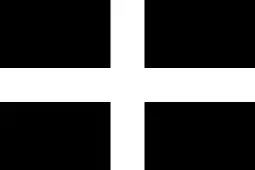Erica vagans
Erica vagans, or Cornish heath, or wandering heath, is a species of flowering plant in the family Ericaceae, native to Ireland, Cornwall, western France and Spain.[1] It is a vigorous, spreading, evergreen heather reaching 75 cm (30 in) tall and wide, with pink flowers borne in racemes 14 cm (6 in) long in summer and autumn. The Latin specific epithet vagans literally means "wandering"; in this context it means "widely distributed".[2]
| Erica vagans | |
|---|---|
.jpg.webp) | |
| Scientific classification | |
| Kingdom: | Plantae |
| Clade: | Tracheophytes |
| Clade: | Angiosperms |
| Clade: | Eudicots |
| Clade: | Asterids |
| Order: | Ericales |
| Family: | Ericaceae |
| Genus: | Erica |
| Species: | E. vagans |
| Binomial name | |
| Erica vagans | |
.jpg.webp)
Description
Cornish heath is an evergreen subshrub, growing to a height of 1 to 3 ft (30 to 90 cm). The small linear leaves with pale undersides and down-rolled margins grow in whorls of four or five on the wiry stems. The inflorescence is a fat, leafy spike with a few long-stalked, globular flowers; these are pink or lilac and have brown stamens that protrude from the open mouths. The flowering period is from July to September.[3]
Cornish population
In Great Britain it is only found on the Lizard peninsula in southern Cornwall, where the unusual geology gives rise to the acid soils that it favours. It was voted the County flower of Cornwall in 2002 following a poll by the wild flora conservation charity Plantlife.[4] It is often considered the Cornish floral emblem.[5] According to one story this is because when Joseph of Arimathea first arrived in Cornwall looking for tin he had nowhere to stay, so he spent his first night on a bed of Cornish heather. In thankfulness, he blessed the plant and it has been a blessed plant ever since.[6]
Cultivation
Like almost all plants in the heath family (Ericaceae), E. vagans requires an acidic or, at the very least, neutral soil to thrive. In areas with alkaline (basic) soil, this can be achieved by planting E. vagans in containers with ericaceous compost. Numerous cultivars have been developed with a range of flower colours in white, pink, mauve and purple. The following cultivars have gained the Royal Horticultural Society's Award of Garden Merit:-[7]
References
- RHS A-Z encyclopedia of garden plants. United Kingdom: Dorling Kindersley. 2008. p. 1136. ISBN 1405332964.
- Harrison, Lorraine (2012). RHS Latin for gardeners. United Kingdom: Mitchell Beazley. p. 224. ISBN 9781845337315.
- McClintock, David; Fitter, R.S.R. (1961). The Pocket Guide to Wild Flowers. London: Collins. p. 122.
- Plantlife website County Flowers page Archived 2015-04-30 at the Wayback Machine
- James Minahan, The complete guide to national symbols and emblems , Volume 1, 2009
- Nicholls, Steve (2019). Flowers of the Field: Meadow, Moor and Woodland. Head of Zeus. p. 568. ISBN 978-1-78954-068-0.
- "AGM Plants - Ornamental" (PDF). Royal Horticultural Society. July 2017. p. 36. Retrieved 6 February 2018.
- "RHS Plantfinder - Erica vagans 'Mrs D.F. Maxwell'". Retrieved 17 February 2018.
- "RHS Plant Selector - Erica vagans f. alba 'Cornish Cream'". RHS. Retrieved 24 March 2020.
- "RHS Plant Selector - Erica vagans f. alba 'Kevernensis Alba'". Retrieved 24 March 2020.
- "*E. vagans f. alba 'Lyonnesse'". RHS. Retrieved 19 March 2020.
- "RHS Plant Selector - Erica vagans f. aureifolia 'Valerie Proudley'". Retrieved 23 February 2020.
| Wikimedia Commons has media related to Erica vagans. |
